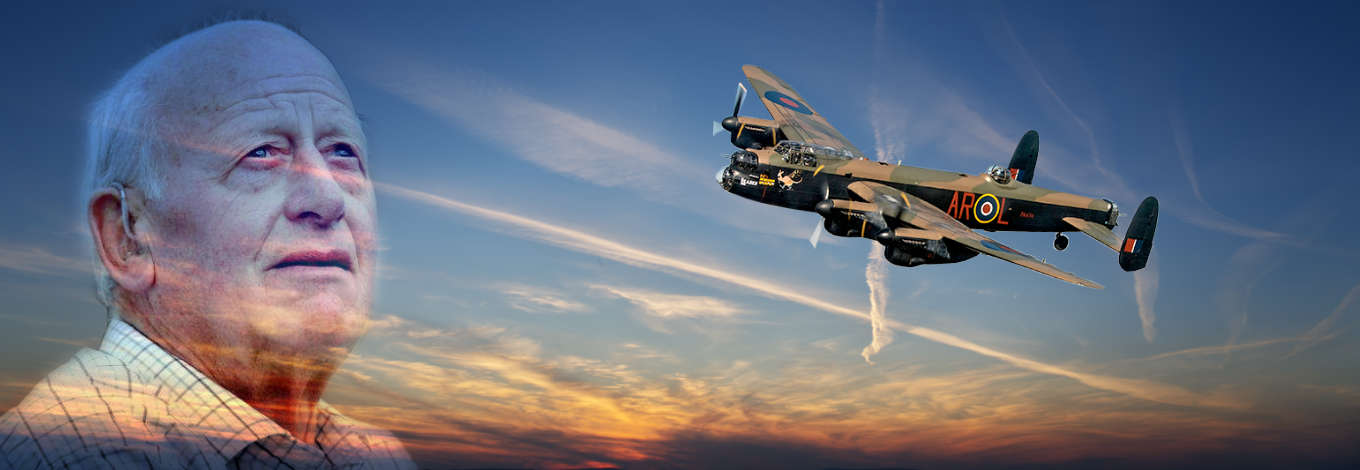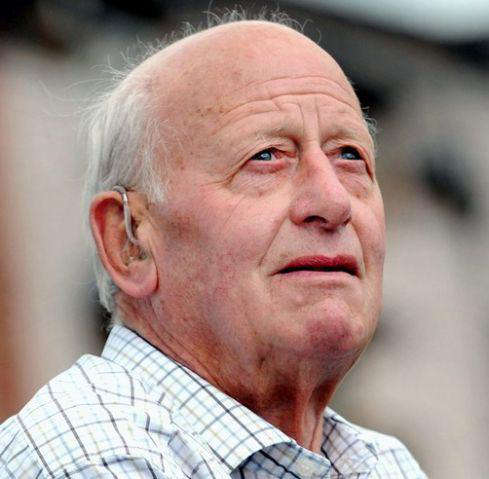Source : Meg Jorsh (News & Star)
A Cumbrian World War Two hero was honoured with a personal flypast by a Lancaster bomber to celebrate his 89th birthday.
Harry Dobinson, of Monks Close, Penrith, survived 30 missions as a rear gunner on the planes – a job where 56 out of every 100 airmen were killed. He was saluted by the RAF Battle of Britain Memorial Flight at Carlisle Airport on Saturday.
He was due to be taken on a tour of the plane by Squadron Leader Al Pinner MBE, but poor weather forced it to return to base in Blackpool. Nonetheless, he said, just seeing it brought back memories.
He said: “Whenever the Lancasters are over I go. Some people don’t like to see it because it just brings it all back to you.”
After the salute, arranged by members of the Solway Aviation Museum, he met some of the future airmen and women from 1862 Squadron (City of Carlisle) Air Cadets. Like many of them, he was aged just 19 when he joined the RAF in 1940.
During basic training, he was posted to RAF Eastchurch, on the Isle of Sheppey in Kent, for a ground defence course. It was August 13, 1940 when tragedy struck for the first time.
He said: “Some of us were still in bed when the sirens went. We got up and there was a Spitfire and a Hurricane or two outside. The next minute we heard a roar of engines and there were three formations of aircraft out there, about 45 in all.”
When I stood up, the bed next to me had disappeared and four of the lads had been killed instantly
Harry Dobinson
Although he didn’t know it yet, the planes were bombers from the German Luftwaffe.
He added: “The machine guns were going so we rushed into the billet and hit the deck, under my bed because there were bombs going off all over.
“When I stood up, the bed next to me had disappeared and four of the lads had been killed instantly.”
Lucky to be alive, he went on to train as a rear gunner and joined a multi-national crew, made up of Australians, New Zealanders and Americans. They became close friends, and went through some hair-raising near misses together.
“I was based at Cambridge when we finished our missions, so we went down to London to celebrate together,” said Harry, who has three children, eight grandchildren and 11 great- grandchildren. “I was as good as teetotal really, but I said if I survived I’d have a drink with them some day.”
He moved back to Cumbria, where he met his wife Irene at a VJ Day party in 1946. To this day, he is modest about his achievements.
He said: “I feel a bit guilty, because anything I’ve done is nothing compared to what some had to go through. A lot of our missions were short trips supporting our troops.
“If I work out that for the whole of the war there were 23,000 killed every day, I can hardly credit it.”

